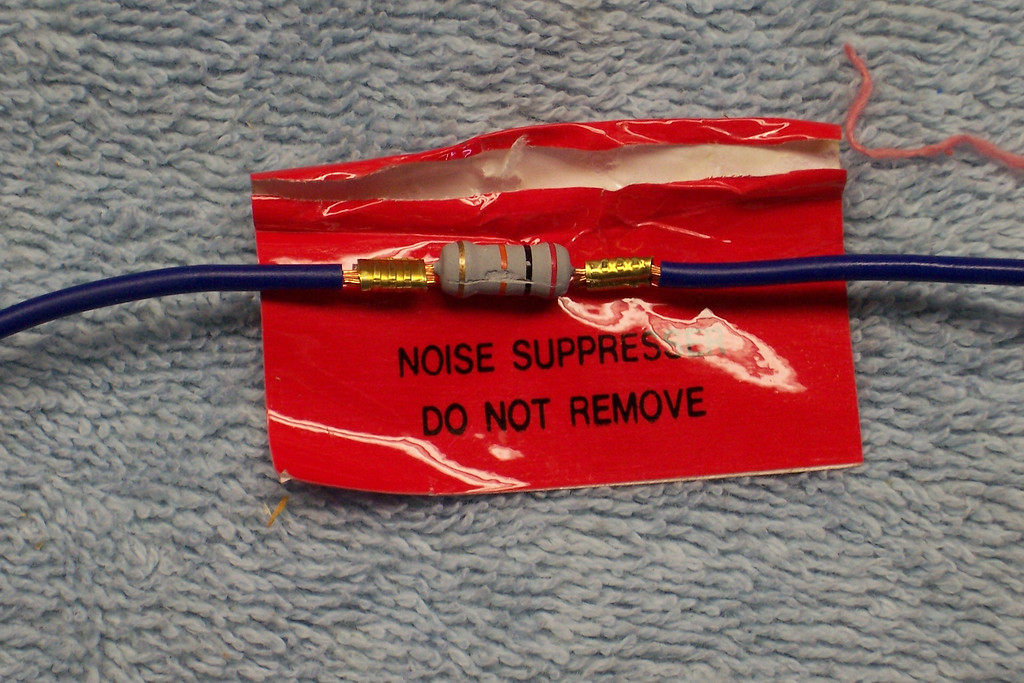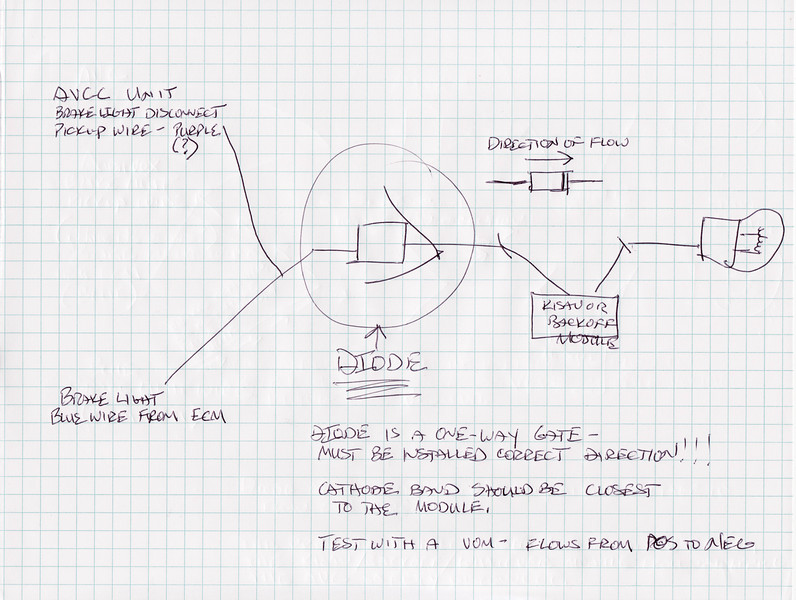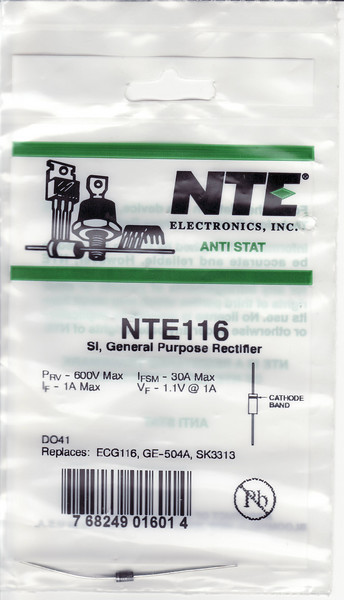I need to understand the functioning/limitations of a resistor - this is due to the information I've uncovered with the help of the forum members that posted in my Audiovox CCS100 Poll recently.
I've done oodles of internet research, but I've still got the blender spinning with all the information I've poured through. So - I have some questions - and I'm hoping that one of the many electrical gurus on this forum will help us out here -
OK - The audiovox CCS 100 has a lead that per the instructions, is supposed to tie into one of the coil wires, it's purpose is to sense engine speed. This lead has a resistor wired in series.
This resistor measures 20K Ohm, and it's purpose, as I understand it, is to filter out (essentially 'smooth' out) the firing pulses coming from the coil.
(EDIT March 7 to correct resistor value - Thanks, guys !)
The resistor used by Audiovox looks like this:

This resistor shows a gold band, which indicates that the tolerance is +/-5% - however, I understand that the value can change with temperature - but to what degree I don't understand.
So - there are two questions I have -
1. Does anyone understand or know the degree to which the resistance changes with temperature INCREASE in a ceramic resistor? (Okay, there's a subset question next
1.a And what way does the resistance change - does the resistance INCREASE or DECREASE with the temperature increase?
And now for the second question:
2. This is a good one: We are all aware that the GenII bikes have a larger wattage output from the stator - could this possibly result in a higher wattage hitting the coil wires than on a GenI bike? I.E., more "noise" on the wire?
OK - I just thought of a third - (fourth?) How does one go about measuring resistance of a resistor?
Thanks in advance for your answers. I appreciate it.
Just for everyones' information -
There seems to be two different symptoms of the problems -
the first being: Failure to hold a speed -
the second being: Failure to engage.
These symptoms are being investigated concurrently by two different people - so everyone just be patient, and we'll continue to cook along on these.
Having fun yet ?
I've done oodles of internet research, but I've still got the blender spinning with all the information I've poured through. So - I have some questions - and I'm hoping that one of the many electrical gurus on this forum will help us out here -
OK - The audiovox CCS 100 has a lead that per the instructions, is supposed to tie into one of the coil wires, it's purpose is to sense engine speed. This lead has a resistor wired in series.
This resistor measures 20K Ohm, and it's purpose, as I understand it, is to filter out (essentially 'smooth' out) the firing pulses coming from the coil.
(EDIT March 7 to correct resistor value - Thanks, guys !)
The resistor used by Audiovox looks like this:

This resistor shows a gold band, which indicates that the tolerance is +/-5% - however, I understand that the value can change with temperature - but to what degree I don't understand.
So - there are two questions I have -
1. Does anyone understand or know the degree to which the resistance changes with temperature INCREASE in a ceramic resistor? (Okay, there's a subset question next
1.a And what way does the resistance change - does the resistance INCREASE or DECREASE with the temperature increase?
And now for the second question:
2. This is a good one: We are all aware that the GenII bikes have a larger wattage output from the stator - could this possibly result in a higher wattage hitting the coil wires than on a GenI bike? I.E., more "noise" on the wire?
OK - I just thought of a third - (fourth?) How does one go about measuring resistance of a resistor?
Thanks in advance for your answers. I appreciate it.
Just for everyones' information -
There seems to be two different symptoms of the problems -
the first being: Failure to hold a speed -
the second being: Failure to engage.
These symptoms are being investigated concurrently by two different people - so everyone just be patient, and we'll continue to cook along on these.
Having fun yet ?
Last edited by a moderator:
































































